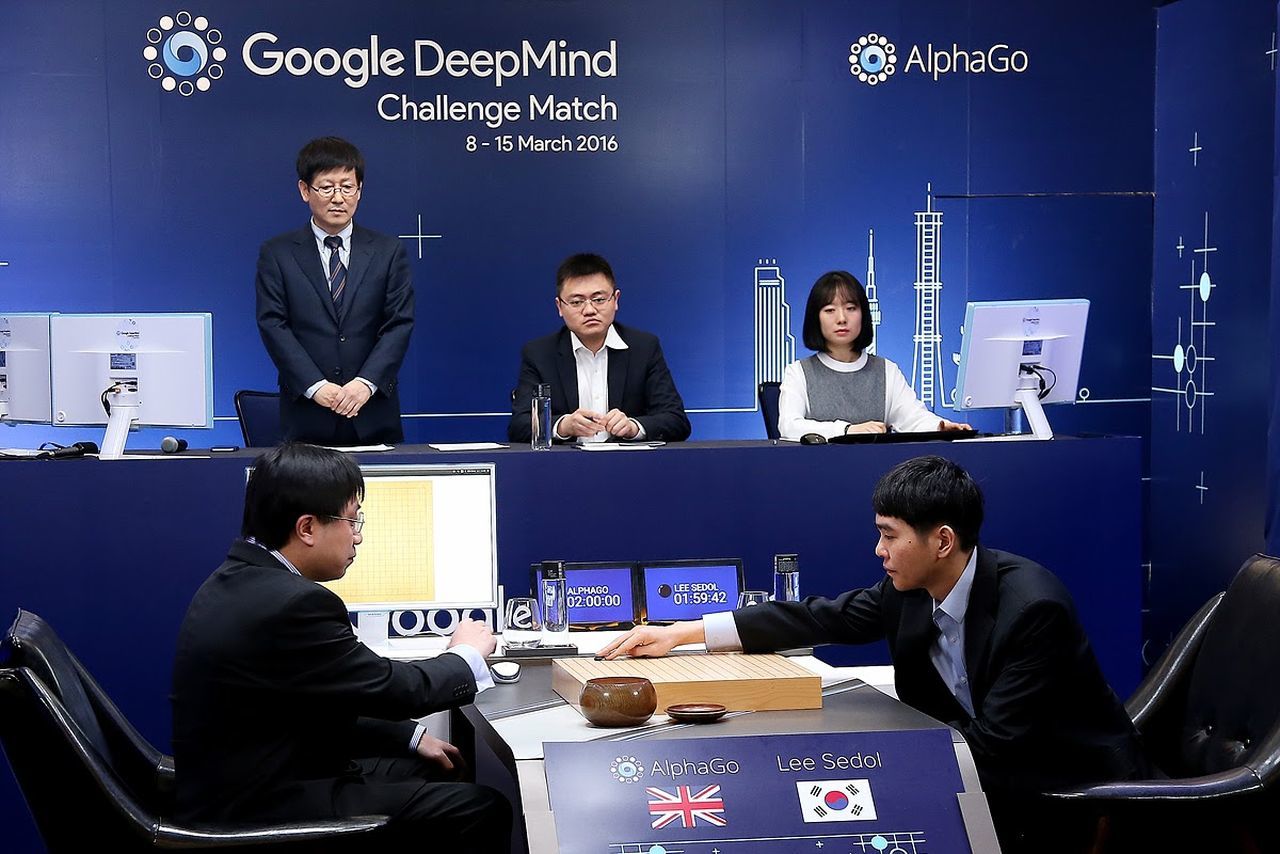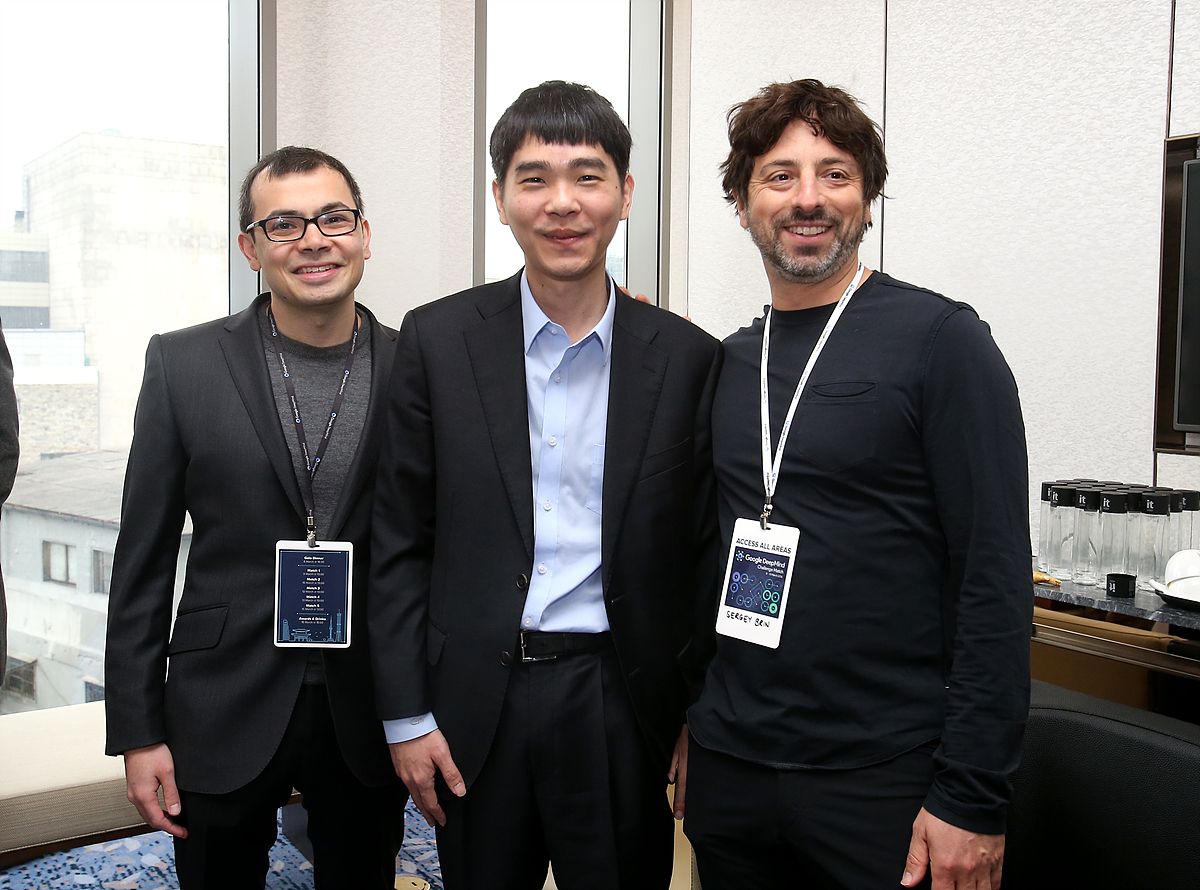AlphaGo wins Lee Sedol's third decisive game
The third victory of artificial intelligence in a historical series of five games in th
 Go is an East Asian logic game with ancient history and rich cultural traditions. There are several rules and variations, but the main goal is the same: each of the two players needs to fence off the territory of the largest possible size with stones of their own color. Artificial intelligence researchers in th are attracted by complexity. It's too late to conquer chess - computers have been playing better than humans for several years now. But in go, the number of possible positions is much higher (10 100 ) than in chess. Modern programs play well, but at the level of go-lovers. Before creating a system that can beat the best of people, at best a decade.
Go is an East Asian logic game with ancient history and rich cultural traditions. There are several rules and variations, but the main goal is the same: each of the two players needs to fence off the territory of the largest possible size with stones of their own color. Artificial intelligence researchers in th are attracted by complexity. It's too late to conquer chess - computers have been playing better than humans for several years now. But in go, the number of possible positions is much higher (10 100 ) than in chess. Modern programs play well, but at the level of go-lovers. Before creating a system that can beat the best of people, at best a decade.So experts said before the advent of AlphaGo. Development from DeepMind (Google bought the company in 2014) uses the Monte Carlo method. The best of modern computer systems use this technology. But at AlphaGo, moves also help to choose neural networks of politics and values. They can be called close relatives of neural networks that recognize images and speech. The system was first taught to play on 160 thousand games from the KGS server. Then AlphaGo trained in games against herself.
For the first time, this AI sample attracted attention in January. Then Google published a scientific paper on AlphaGo, which mentioned the October 2015 match. Three-time European champion Fan Hui lost the new development in five out of five games.
It is believed that the European level of go is lower than in the homeland of the game, in Asia. The individual moves and mistakes of Hui raised questions. Therefore, go players and AI enthusiasts were looking forward to the AlphaGo Seoul match against one of the best representatives of the team of people - the owner of the ninth professional dan Lee Sedol .
Until March, the question was as follows: does AlphaGo have a chance against Lee Sedola ? But Sedol lost both the first and second games. If after the first game the master of the ninth dan showed optimism, then after the second game he left in confusion. Sedoll stated that he did not see the moments where he played the game.
Today was the third installment. The game was attendedformer head of Google Eric Schmidt, one of the important engineers of the company Jeff Dean and Sergey Brin who arrived in Seoul the other day. Obviously, conquering go symbolizes the importance of machine learning technologies, which are the heart of Google. From left to right: DeepMind founder Demis Hassabis, ninth professional dan owner Lee Sedol, Google co-founder Sergey Brin. As in the first game, Sedol went black, that is, the first. Also, acquaintance with the system could be included among the good points - DeepMind engineers hardly have the resources to change something in the days of the match. At least rumor claims

that Sedoll and a team of go experts spent the night looking for AlphaGo weaknesses. Black's first moves were aggressive. It seems that Sedol was trying to take the game in a different direction, trying to put pressure on the weak points of the system.
Video broadcast of the third installment of the match AlphaGo - Lee Sedol.
During the game, the AI demonstrated the ability to work with difficult moments in the form of ko positions. It is believed that computer go systems cope poorly with ko. By the end of the third game Black had run out of time, so the man had to think over the moves for a minute.
After 176 moves, the game ended with the victory of the AlphaGo system. AI had 8 minutes and 31 seconds left on the clock.

This is the third consecutive AlphaGo victory in the series. The overall outcome of the historical series of five games is determined. The fate of the monetary reward has been determined - it is obvious that now he will go to charity and development of go, as was intended in the event of a person’s defeat. The last two games on Sunday and Tuesday will determine the depth of the demonstration of the benefits of AlphaGo - despite the clear conclusion of the series, it will still be played out.
#AlphaGo won game 3 and the match! Historic moment. In complete awe of Lee Sedol's incredible genius, and proud of the amazing AlphaGo team!
- Demis Hassabis (@demishassabis) March 12, 2016
Last March, the system beat the second professional dan player, today it bypasses about the ninth dan. Perhaps this was helped by the fact that the AlphaGo system has trained in games against itself over the past five months. According to the head of DeepMind Demis Hassabis, the current configuration uses about the same amount of hardware resources as the option that beat Fan Hui. Hassabis says algorithms are more important than hardware.
The last, fifth game will take place on Tuesday. Then the results of the battle of thousands of years of human game in th and two-year development, launched on a cluster of several dozen commercially available server processors of graphics accelerators, will be summed up.
Useful materials on the topic:
- Party moves .
- Channel DeepMind with broadcast games on YouTube . Michael Redmond (9th professional dan) and Chris Garlock comment in English.
- The review of AlphaGo algorithms published on Habr published yesterday .
